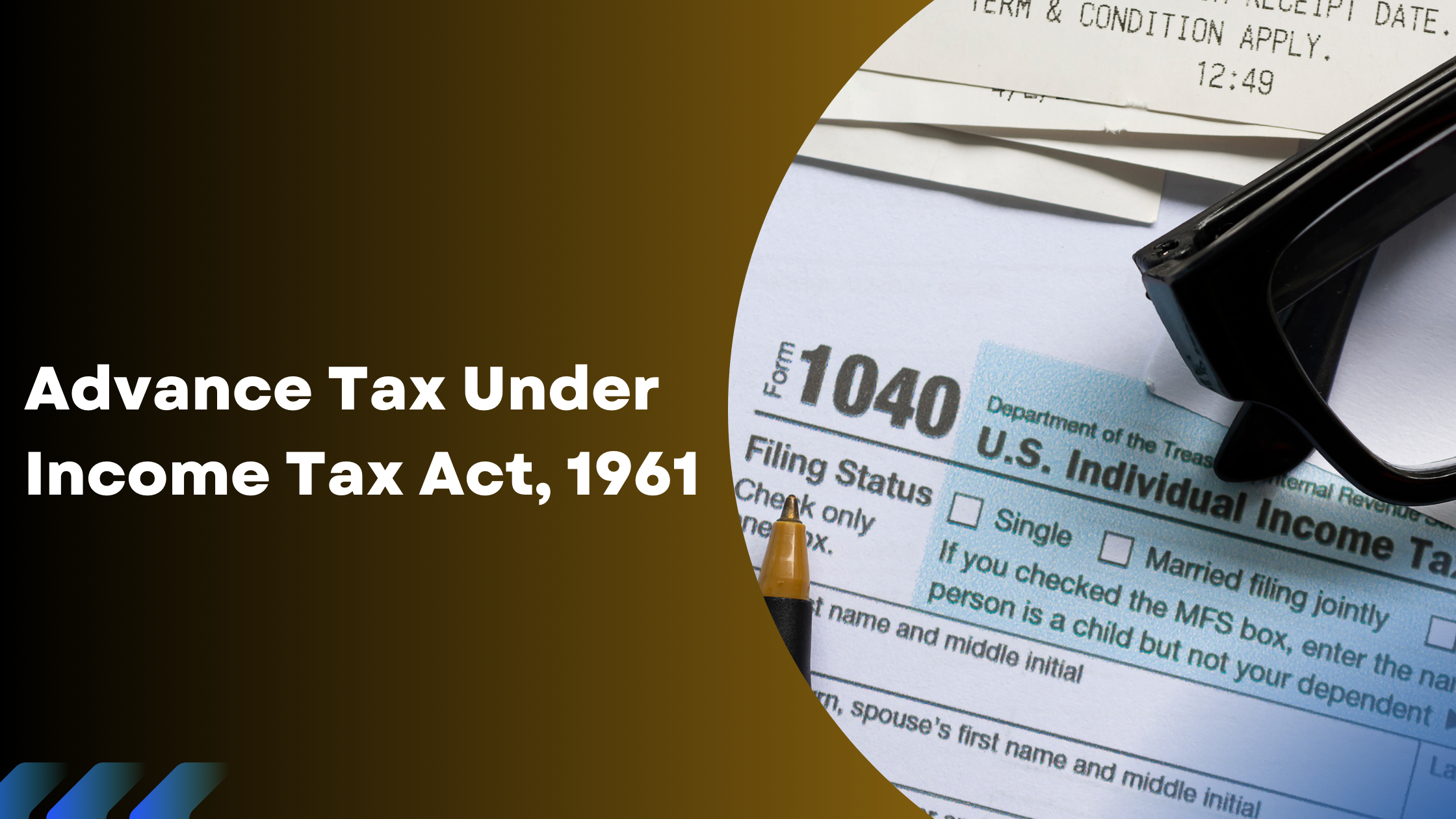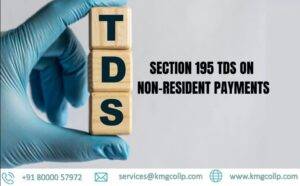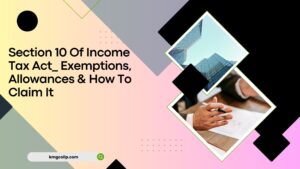Learn about Advance Tax according to the Income Tax Act, 1961. Understand compliance procedures, methods for revising income estimates, key deadlines, exemption criteria, applicable tax rates, and the steps to calculate advance tax payments. Keep yourself informed to manage your tax obligations effectively.
Q.1 Is it possible to revise the income estimate for advance tax purposes?
Ans. Yes, if the assessee wishes to adjust their income estimate after paying the first or second installment of advance tax, they can revise the subsequent installments based on their updated income estimate and make the necessary advance tax payments accordingly.
Q.2 Who is exempt from paying Advance Tax?
- A resident senior citizen (i.e., an individual aged 60 years or above during the financial year) who does not have any income from business or profession is not required to pay advance tax.
- Taxpayers who have opted for the presumptive taxation scheme under section 44AD or section 44ADA must pay 100% of their advance tax by March 15th.
Q.3 What is the due date for the payment of advance tax if it is required by an order from the Assessing Officer/Income Tax Officer?
Ans. If advance tax is payable due to a notice of demand issued by the Assessing Officer, the entire amount or part of the advance tax must be paid in the remaining installments, i.e., the installments due during the financial year after the date of the notice.
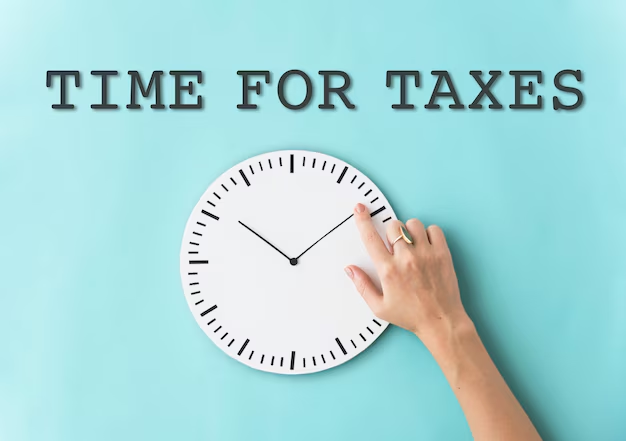
Q.4 Can the estimate of income be revised for the purpose of advance tax?
Ans. Yes, if the assessee wishes to revise the estimate of income after paying the first or second installment of advance tax, they can adjust the remaining installments based on their updated income estimate and pay the advance tax accordingly.
Q.5 How is advance tax computed on capital gains income?
Ans. Advance tax is payable on the total income, which includes capital gains and casual income (e.g., income from lotteries, crossword puzzles, etc.).
However, it is often impractical to estimate capital gains and casual income in advance. Therefore, if such income arises after the due date of any installment, the tax calculated on these incomes should be paid in the remaining installments of advance tax that are due.
If the entire advance tax amount is paid on or before the specified due date, no interest will be charged for late payment of advance tax.
Q.6 What should I do if I forgot to separate the amount of tax, surcharge, and cess while making the online payment?
Ans.
- It is advisable to show the total tax liability as Income Tax, Education Cess, Surcharge, etc.
- However, if you did not separate the tax payment amounts (e.g., Income Tax, Surcharge, Cess) for any reason, there is no need to panic.
- When filing the income tax return, simply mention the total amount in the Income Tax column, and that will be sufficient. However, you should provide the correct bifurcation details at the time of filing the return. The Central Processing Centre (CPC) will verify the details during processing.
Q.7 What should be kept in mind while making a tax payment?
Ans. While making a tax payment, it’s important to clearly mention the following details:
- Head of Payment: Specify whether it is Corporation Tax or Income Tax (other than companies).
- Amount and Mode of Payment: Clearly state the amount and the mode of payment.
- Type of Payment: Indicate whether it is Advance Tax, Self-assessment Tax, Tax on Regular Assessment, Tax on Dividend, Tax on Distributed Income to Unit Holders, or Surtax.
- Assessment Year: Ensure you correctly specify the Assessment Year (AY), which is different from the Financial Year (FY). This is a common mistake.
- Permanent Account Number (PAN): Enter the unique identification number allotted by the IT Department.
- Verify all details displayed on the screen before proceeding with the payment to ensure accuracy.
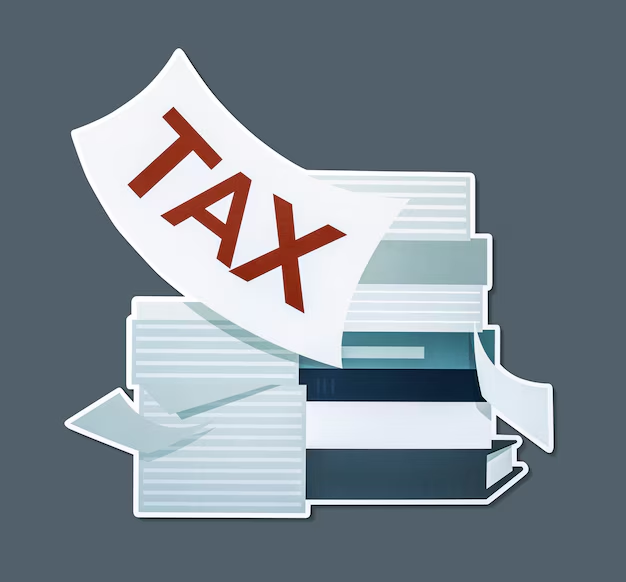
Q.8 How does advance tax paid get reflected in Form 26AS?
Ans. Once advance tax is paid, it will be reflected in the assessee’s Form 26AS within 3-4 working days of making the payment.
- The banks upload challan details to TIN within 3 working days after the realization of the tax payment online.
- After the bank uploads the details of self-assessment/advance tax to TIN, it is automatically posted into the assessee’s Form 26AS.
Q.9 How is advance tax calculated on capital gains income?
Ans. Advance tax is due on the total income, including capital gains and casual income (such as income from lotteries, crossword puzzles, etc.).
Since it can be challenging to estimate capital gains and casual income in advance, if such income arises after the due date of any installment, the tax on these incomes should be paid in the remaining installments of advance tax that are due.
If the entire advance tax amount is paid on or before the specified due date, no interest for late payment will be charged.
Q.10 What should we do if the bank is closed on the last day for paying advance tax?
Ans.
- Taxes paid up to March 31st are considered advance tax.
If the last day for advance tax payment falls on a day when banks are closed, you should make the payment on the next available working day. No interest will be charged on such payments. Alternatively, you can pay the tax online through internet banking, debit card, or other available online methods.
Q.11 When is an assessee considered to be in default for advance tax purposes?
Ans. An assessee is considered to be in default for advance tax if they:
- Fail to pay the advance tax by the due dates specified in the order from the Income Tax Officer, or
- Do not submit an intimation in Form 28A before the installment due date.
Q.12 What is Form 28A?
Ans. Form 28A is used when the Assessing Officer’s estimation of current income exceeds the assessee’s estimate. The assessee is required to submit this form to provide an updated estimate of their reduced income and the corresponding advance tax.
This form is prescribed under Rule 39 of the Income Tax Rules (Form No. 28A).
Q.13 Who is responsible for submitting Form 28A?
If the Assessing Officer’s assessment of current income exceeds the taxpayer’s estimate, the taxpayer must submit an intimation using Form 28A, providing their income estimate and details of advance tax payable. This form must be filled out and signed by an individual authorized to sign an income tax return.
For registered firms, the firm must submit an estimate of advance tax payable, if applicable. Individual partners are also required to submit estimates of their respective advance tax liabilities, including their share of income from the registered partnership firm.
In the case of a Hindu Undivided Family (HUF) without any member whose total income for the previous year is likely to exceed the maximum amount not chargeable to income tax, a declaration must be filed by all members.
Q.14 Can TDS credit be used in calculating advance tax?
As per section 208 of the Income-tax Act, 1961, any individual whose estimated tax liability for the year exceeds INR 10,000, after accounting for taxes deducted at source (TDS), is required to pay advance tax.
Therefore, the credit of TDS should be considered when calculating the advance tax liability.
However, if income is received without any tax deduction, the benefit of TDS cannot be applied towards calculating the advance tax liability.
Q.15 What should I do if I receive a notice from the income-tax department for payment of advance tax, but my actual income is higher than what the tax officer has determined?
Ans. The Assessing Officer has the authority to issue an order requiring you to pay advance tax if they believe you are liable to do so.
However, if you believe that your estimated advance tax liability for the year is lower than what has been calculated by the income-tax officer, you have the option to submit your own estimate of income and the tax payable on Form No. 28A to the Assessing Officer.
Alternatively, if the tax demand computed by the Income-tax officer is lower than your own calculated tax liability, you should pay advance tax based on your own computation.
In such cases, there is no requirement to inform the income-tax officer separately.
Q.16 Can advance tax payments be made through any bank account?
Ans.
- The payment of taxes does not have to originate from the taxpayer’s own account in an authorized bank.
- An individual can make the payment from any person’s account.
- However, the challan used for making such payments must clearly specify the Permanent Account Number (PAN) of the taxpayer on whose behalf the payment is being made.
Q.17 Who is required to pay Advance Tax?
Ans. According to Section 208 of the Income Tax Act,
- Every individual, firm, company, or other entity,
- Whose estimated tax liability for the current financial year (e.g., FY 2021-22, FY 2022-23, etc.)
- After accounting for TDS (Tax Deducted at Source) amounting to Rs. 10,000 or more,
- Must pay their tax liability in advance during the same financial year.
- This advance tax is paid in instalments.
- Individuals whose income is solely from salary are generally exempt from paying advance tax, as the responsibility to deduct and deposit taxes lies with the employer through TDS.
Disclaimer: The materials provided herein are for informational purposes only and do not constitute legal, financial, or professional advice. Consult relevant laws and experts before acting on this information. Neither the author nor K M GATECHA & CO LLP is liable for any inaccuracies or omissions. This material is purely educational and not an advertisement or solicitation.


